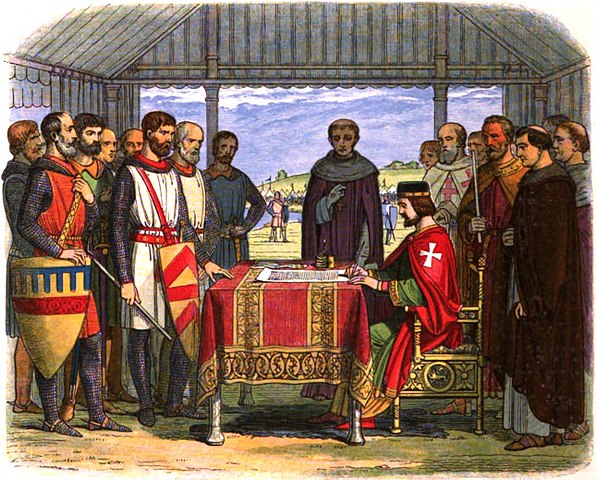The criminal court system in the United Kingdom is comprised of three divisions - the Courts of England and Wales, the Courts of Scotland and the Courts of Northern Ireland – whose area of jurisdiction are divided geographically.
Unlike the United States, which relies on the Constitution, Declaration of Independence and Bill of Rights, UK has no constitution or singular constitutional document which governs and legislates the rights of an individual charged with a crime and the role of the government in delivering judicial recourse. Instead, the country’s constitution is made up of various acts, statutes and treaties enacted by the Parliament. Some of the major legislations and treaties that serves as the cornerstone of modern criminal legislation in UK includes:

Better known as Magna Carta, the document was issued by King John of England (1199 - 1216) on 15 June, 1215 as part of an effort to quell the rebellious barons of the land. The document revoked the divine right of kings and established a set of personal liberties for the common folk. It essentially established the principle that everyone, including the King, is subject to the laws of the land. Although almost all the clauses within the Magna Carta have been repealed over the past eight centuries, the Magna Carta has retroactively become the foundation of modern British law.
King John signing the Magna Carta in 1215, witnessed by the rebel barons
Enacted on 16 December 1689, the Bill of Rights enumerates, among others, the limitations on the powers of monarchy, the roles and responsibilities of the parliament, the rights of the citizens to a fair and free election, and basic civil rights.
Aside from regulating succession laws for the throne in UK and Commonwealth nations, this parliamentary act is also notable because it established the judiciary’s constitutional independence.
These two acts placed Scotland and England under a single legislative body, the Parliament.
This is provides detailed legal authority, as well as safeguards against abuse, to the police on matters relating to arrests, searches and detentions.
The act was designed to incorporate the European Convention on Human Rights (ECHR) into British law. It provides a legal recourse for citizens to seek redress in domestic courts for any allege breach of human rights by law enforcement agencies and government bodies.
Among the many changes introduced by the act, two in particular stood out:
The combination of these acts, alongside the ever changing and ever growing statutes codified in parliament, creates the framework for the criminal justice system in the country.
© criminal-courts-review.org.uk 2019. All Rights Reserved